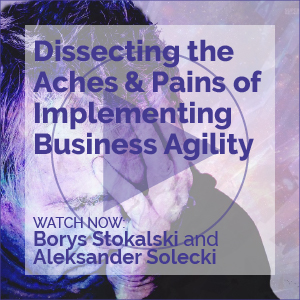Bridging E-Business and Added Trust: The Keys to E-Business Growth
Applying Aspect-Oriented Programming to Security
Applying Aspect-Oriented Programming to Security
Human Capital
Market Mechanisms
Assertion #44Ultimately, most capital employed by successful firms will be human, not physical, and it will flow, like financial capital, to its most productive use.
Human Capital
Market Mechanisms
Assertion #44Ultimately, most capital employed by successful firms will be human, not physical, and it will flow, like financial capital, to its most productive use.
Zaplets: Do-It-Yourself Collaboration
The Cutter Technology Trends Council Assertion #39 states, "We will see a new class of applications that we don't even know how to characterize yet (e.g., Zaplets)." This assertion will be explored fully in a future Council Opinion; the purpose of this Executive Update is to provide information about the Zaplet technology.
Zaplets: Do-It-Yourself Collaboration
The Cutter Technology Trends Council Assertion #39 states, "We will see a new class of applications that we don't even know how to characterize yet (e.g., Zaplets)." This assertion will be explored fully in a future Council Opinion; the purpose of this Executive Update is to provide information about the Zaplet technology.
Exploiting the Business Value of Advancing Technology
One of the many roles of a modern IT organization is finding and introducing new technology that enhances its parent organization's business objectives. When properly executed, this role enables IT to bring real bottom-line value to its parent by enabling breakthroughs in products, services, operational effectiveness, and/or competitive differentiation.
Exploiting the Business Value of Advancing Technology
One of the many roles of a modern IT organization is finding and introducing new technology that enhances its parent organization's business objectives. When properly executed, this role enables IT to bring real bottom-line value to its parent by enabling breakthroughs in products, services, operational effectiveness, and/or competitive differentiation.
IBM's E-Business Patterns and Foundation Technology's Training
A couple of months ago, I wrote an Advisor on IBM's new patterns for e-business. In essence, IBM has examined the work it has done for clients and identified and formalized the major, recurring ways in which companies have solved e-business problems. At the moment, IBM has documented eight high-level e-business patterns:
Risk Management: We Need to Change the Name
Risk management is a critical part of project management, but it has one major problem -- the word "risk." This word is ruining the subject, and we should do something about it.
Risk Management: We Need to Change the Name
Risk management is a critical part of project management, but it has one major problem -- the word "risk." This word is ruining the subject, and we should do something about it.
Risk Management: We Need to Change the Name
Risk management is a critical part of project management, but it has one major problem -- the word "risk." This word is ruining the subject, and we should do something about it.
Risk Management: We Need to Change the Name
Risk Management: We Need to Change the Name
Should "Pure Data Transactions" Be Taxable?
Decisionmaking -- Retrospection
A New Wrinkle in Internet Taxation
A New Wrinkle in Internet Taxation
Revamping the Role of CIO
The strategies, techniques, and skill sets that made IT executives successful in the past will not suffice today or in the foreseeable future. Rather than a technology manager, today's IT executive is a business integrator, the executive who can identify ways to use technology to achieve competitive advantage.
Microsoft's New Visual Basic
Object Orientation: Back to Basics
During the past six months, I have been training and mentoring managers, users, and developers from the armed forces, major defense contractors, medical insurance companies, state governments, electrical and telephone utilities, and world-class research organizations. In every case, I was taken by surprise in learning that people from these organizations were still trying to understand the basics of object orientation.




